My Cat Relapsed After GS-441524 Treatment. Now What
Understanding FIP Relapses: Causes and Signs
Coping with a recurrence of Feline Infectious Peritonitis (FIP) after GS-441524 treatment can be both emotionally taxing and perplexing for cat owners. Experiencing a relapse can lead to feelings of worry, frustration, and uncertainty about the next steps in managing your cat’s health. For those facing this challenging situation, this comprehensive guide aims to provide valuable insights, evidence-based information, and practical strategies to support both you and your feline companion. We will explore the factors that may trigger relapses, outline a range of potential treatment options, and discuss essential supportive care techniques to help maintain your cat's well-being. By understanding the underlying causes, recognizing early warning signs, and implementing effective care measures, owners can make informed decisions and offer the best possible support, ultimately improving the chances of a positive outcome even in cases of FIP recurrence.
|
|
|
Understanding FIP Relapses: Causes and Signs
When a cat experiences a relapse after GS-441524 treatment, it's crucial to understand the potential causes and recognize the signs early. This knowledge can help you take prompt action and improve your cat's chances of recovery.
Common Causes of FIP Relapses
- Insufficient treatment duration
- Inadequate dosage
- Drug resistance
- Incomplete viral clearance
- Weakened immune system
Recognizing Relapse Symptoms
Be vigilant for the following signs that may indicate your cat is experiencing a relapse:
- Recurrence of fever
- Loss of appetite
- Lethargy or decreased activity
- Weight loss
- Return of effusion (fluid accumulation) in wet FIP cases
- Neurological symptoms in neurological FIP cases
- Ocular issues in ocular FIP cases
|
|
|
|
Alternative Treatments for Recurring FIP
If your cat experiences a relapse after GS-441524 treatment, it becomes essential to explore alternative options to support recovery. While GS-441524 continues to be a primary and effective treatment, additional approaches may be considered depending on your cat's unique condition, overall health, and specific needs, always in consultation with your veterinarian to ensure safe and effective care.
Adjusting GS-441524 Treatment
Before completely switching treatments, your veterinarian may recommend adjusting the GS-441524 regimen:
- Increasing the dosage
- Extending the treatment duration
- Switching to a different form of GS-441524 (e.g., from oral to injectable)
Alternative Antiviral Medications
In cases where GS-441524 is no longer effective, other antiviral medications may be considered:
- Remdesivir
- EIDD-1931 (Molnupiravir)
- Cyclosporine A
Supportive Therapies
Complementary treatments can help manage symptoms and support your cat's overall health:
- Fluid therapy
- Nutritional support
- Anti-inflammatory medications
- Immune system modulators
 |
 |
 |
Monitoring and Support: Post-Relapse Care Guide
After initiating treatment for a relapse following your GS-441524 purchase, close monitoring and supportive care are essential for your cat's recovery. This section outlines key aspects of post-relapse care to ensure the best possible outcome for your feline friend.
Regular Veterinary Check-ups
Frequent visits to your veterinarian are crucial during this time. These check-ups may include:
- Physical examinations
- Blood tests to monitor organ function and disease progression
- Imaging studies (e.g., ultrasounds, X-rays) if necessary
At-Home Monitoring
As a pet owner, your observations are invaluable. Keep track of:
- Daily temperature readings
- Appetite and water intake
- Activity levels and behavior changes
- Weight (weekly weigh-ins if possible)
- Any recurring or new symptoms
Nutritional Support
Proper nutrition is vital for recovery. Consider:
- High-quality, easily digestible cat food
- Appetite stimulants if prescribed by your vet
- Hand-feeding or syringe-feeding if necessary
- Supplements recommended by your veterinarian
Stress Reduction
Minimizing stress can support your cat's immune system:
- Provide a quiet, comfortable recovery space
- Maintain a consistent routine
- Use pheromone diffusers to create a calming environment
- Offer gentle affection and companionship
 |
 |
Conclusion
Facing a relapse after GS-441524 treatment can feel overwhelming and emotionally challenging for cat owners, but it is important to remember that hope still exists. Many cats can respond positively to renewed or adjusted treatment when interventions are implemented promptly and carefully monitored. Maintaining close communication with your veterinarian is essential to ensure the best possible care and to make timely adjustments to therapy as needed. Providing dedicated attention at home, including monitoring symptoms, administering medications accurately, and offering supportive care, can significantly impact recovery. Patience, optimism, and consistent support are vital, as your unwavering commitment plays a crucial role in helping your cat overcome a relapse and continue on the path toward improved health and well-being during their fight against FIP.
FAQ
Q1: How long after completing GS-441524 treatment can a relapse occur?
A1: Relapses can occur at various times after treatment, ranging from a few weeks to several months. Some cats may relapse shortly after finishing treatment, while others may show signs of relapse months later. Continued monitoring for at least 3-6 months post-treatment is recommended.
Q2: Can I use the leftover GS-441524 from the initial treatment if my cat relapses?
A2: It's crucial to consult your veterinarian before restarting any treatment. While using leftover medication might seem convenient, your cat may require a different dosage or formulation. Additionally, ensure the medication hasn't expired and has been stored properly.
Q3: Are there any long-term effects of multiple courses of GS-441524 treatment?
A3: Long-term effects of repeated GS-441524 treatments are still being studied. While the medication is generally well-tolerated, prolonged use may potentially impact kidney and liver function. Regular blood work and close veterinary supervision are essential to monitor for any adverse effects during extended or repeated treatments.
Call to Action
The difficulties of FIP management and the possibility of recurrence are well known to us here at BLOOM TECH. To help cats fighting this illness, we have developed high-quality GS-441524 formulations. We have been providing goods that adhere to regulatory criteria and fulfil high quality standards in organic synthesis and pharmaceutical intermediates for over 12 years.
Veterinary professionals and pet owners can rely on our team of specialists to be there for them at every stage of therapy. To guarantee the greatest potential results for your feline patients, we provide comprehensive product information, dosage instructions, and technical assistance.
Don't let a relapse discourage you. Reach out to us for reliable, high-quality GS-441524 purchase options and expert guidance. Contact our dedicated support team at Sales@bloomtechz.com to learn more about how we can assist you in your cat's FIP treatment journey. Together, we can give your cat the best chance at overcoming this challenging condition.
References
1. Pedersen, N.C., et al. (2019). Efficacy and safety of the nucleoside analog GS-441524 for treatment of cats with naturally occurring feline infectious peritonitis. Journal of Feline Medicine and Surgery, 21(4), 271-281.
2. Kim, Y., et al. (2020). Reversal of the progression of fatal coronavirus infection in cats by a broad-spectrum coronavirus protease inhibitor. PLoS Pathogens, 16(3), e1008259.
3. Addie, D.D., et al. (2020). Feline infectious peritonitis. ABCD guidelines on prevention and management. Journal of Feline Medicine and Surgery, 22(11), 1047-1068.
4. Murphy, B.G., et al. (2018). The nucleoside analog GS-441524 strongly inhibits feline infectious peritonitis (FIP) virus in tissue culture and experimental cat infection studies. Veterinary Microbiology, 219, 226-233.

Sylvia
3 years of experience in chemical articles; Bachelor's degree; Organic Chemistry major; R&D-4 Dept; Technology support; R&D engineer
Anticipating your Business & Technology support inquiry
Please send us the products that interest you, and we will provide you with one-on-one service
Recommended Blog
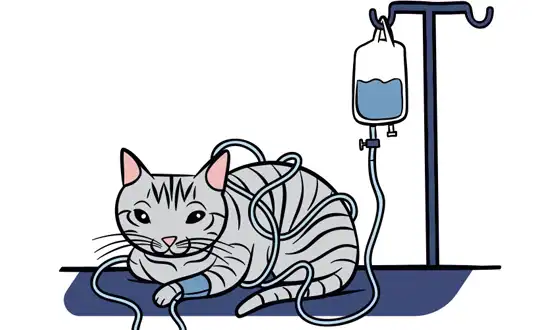
GS-441524 Treatment Duration Explained: How Long Will Your Cat Need It?
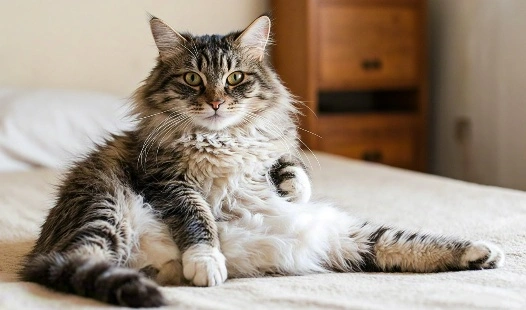
How to Spot Early FIP Symptoms and When to Start GS-441524?
_副本_1757905577235.webp)
The Molecular Mechanism of GS-441524: How It Fights Coronavirus
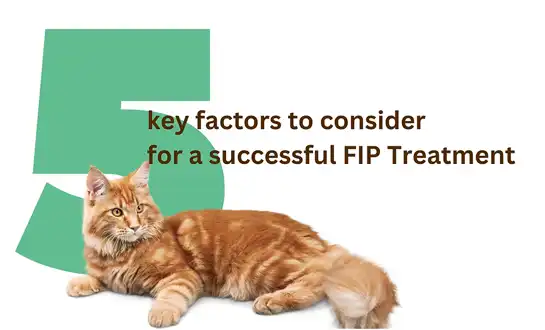
What Are the Side Effects of GS-441524? And How to Manage Them Effectively?







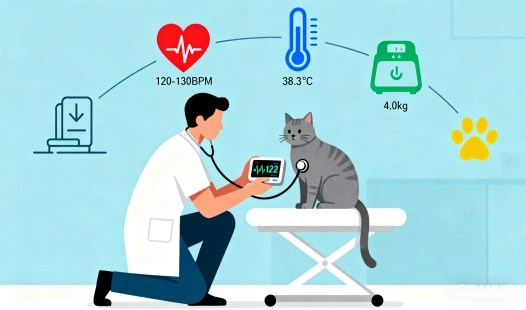
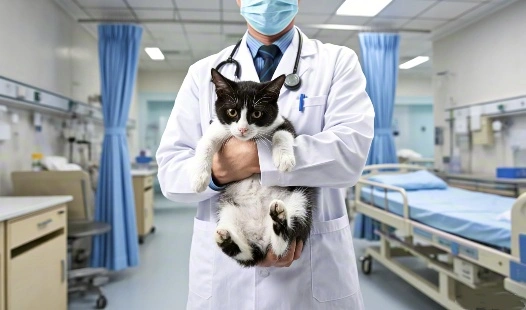
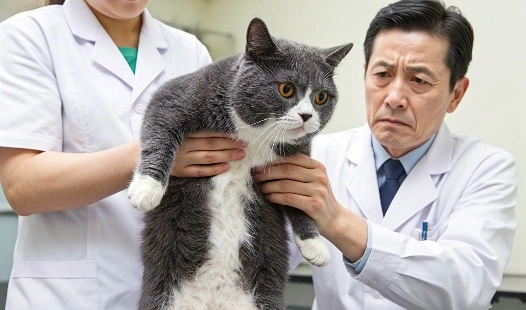
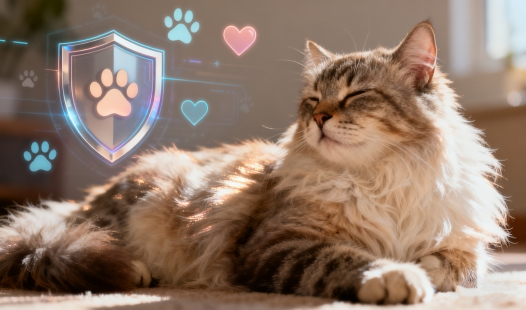
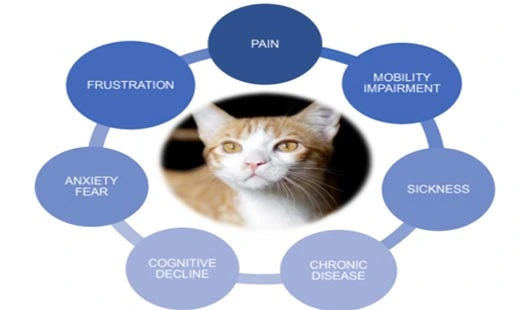
_副本_1758165165105.webp)
